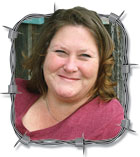Farmers and ranchers are like a large family made up of distant cousins who live all across the country. While the cousins might not know one another or even heard the other’s name, when one is in need they come out of the woodwork to lend a helping hand.
That large family is exactly what we’ve seen over the last several weeks as our agriculture communities have come together to send prayers, support, t-posts, barbed wire, feed, milk replacer, hay and everything in between to those producers who have lost their livestock, fences, homes and barns to wildfires in Texas, Oklahoma, Colorado and Kansas.
The U.S. Department of Agriculture has announced it would provide more than $6 million to those affected in Kansas, Oklahoma and Texas, but that’s only a drop in the bucket of what will be needed. Texas alone is predicting more than $21 million in losses.
The stories of the aftermath of the flames are heartwrenching. Families have buried loved ones who died attempting to save their livestock and their way of life. Producers have walked among their suffering herds, putting injured animals down so they would no longer be in pain. I’m sure sounds of the rounds used to dispatch the animals are still echoing for many, many producers.
Stories of what the farmers and ranchers are experiencing brings a lump to my throat; it’s hard to see what they are going through and not feel emotional. I can’t help but worry if the Ozarks will be the next when I see scorched areas along the roadways.
However, where there are stories of loss, there are stories of hope and inspiration.
Folks from the Ozarks have filled trucks and trailers with supplies and hay for their distant neighbors in need. Several of our livestock markets, agriculture organizations, churches, youth groups and others across the Ozarks have raised thousands of dollars to help out. Cattle have even been donated to help farmers and ranchers rebuild their herds.
Fellow farmers are feeding orphaned calves, caring for some of the smallest victims as they would their own so their owners can concentrate on recovery, and total strangers are being welcomed into homes for a cup of coffee, a shower or a quick nap as they journey to help those in need.
I was told of a young woman from Oklahoma who was on her way home after her university had been evacuated because of the fires, and she came across an older man standing in a plume of smoke along a rural road. She stopped to see what was wrong and the exhausted man said he was trying to cut his fences so his cows might stand a chance against the flames. She grabbed her pliers and began cutting wires alongside the nameless rancher. These are some of the many unsung heroes of this disaster.
The scenes of destruction are difficult to look at, however there are also photographs of new mommas standing next to their newly delivered calves, offering hope to those who wonder how or if they will recover from the ravages of the wildfires of 2017. Where there is life, there is hope.
Ironically, there have been no reports of PETA or the Humane Society of the United States rendering aid to injured or sick livestock, or any other animal impacted by the fires. For organizations that claim to care for all animals, they don’t appear to be in any hurry to share any of the millions of dollars they generate each year in the name of “poor helpless” animals to help livestock. I expected no less from the organizations that are working daily to end animal agriculture.
That’s OK PETA and HSUS, we farmers and ranchers have each other’s backs; that’s what friends, family and neighbors do. That’s what farmers and ranchers do.
Julie






